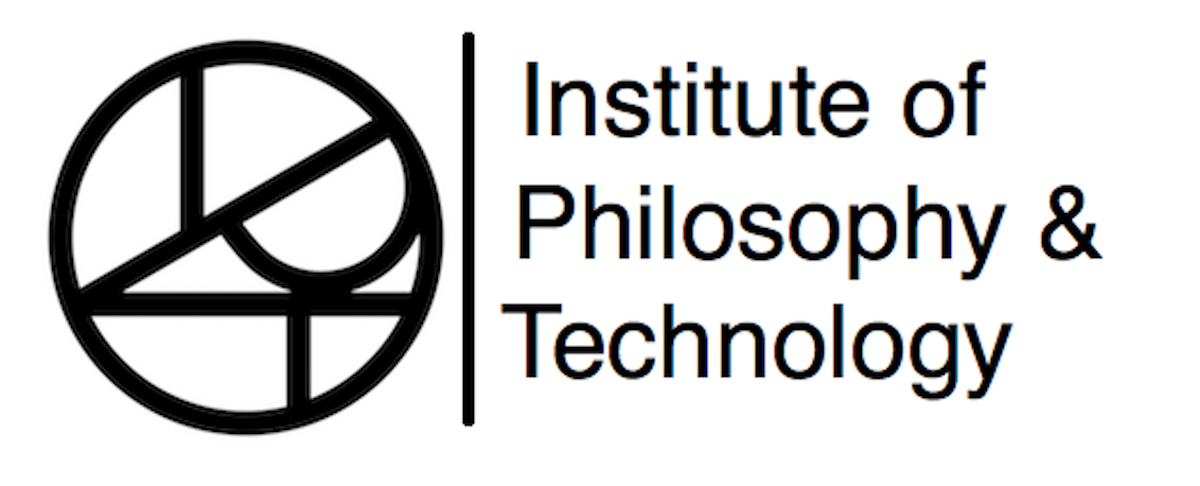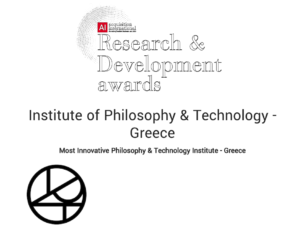IPT Talk Series 2022-23
23 March 2023, 20.00-21.00 (Greece time) (Online)
Vanessa Lemm
Nietzsche: Truth, Embodiment and Consciousness
Against those who see in “consciousness” the highest stage of human development, Nietzsche praises the body (Leib) as infinitely superior, as a “marvellous bringing together of the most multiple life (prachtvolle Zusammenbringen des vielfachsten Lebens)” (KSA 11:37[4] 11.576). Nietzsche recommends following the “guiding-thread of the body (Leitfaden des Leibes)” in all matters of scientific inquiry (Forschung) (KSA 11:26[432] 11.266), especially in relation to matters of the spirit (KSA 11:26[374] 11.249) and claims that “the body is a much more remarkable thought than the old ‘soul’” (KSA 11:36[35] 11.565). Nietzsche’s treatment of the question of the value of truth for life follows the “guiding-thread of the body”: for him, truth is not a function of the intellect’s capacity for representation, but rather of the body’s capacity for incorporation. From the perspective of the body, the crucial question of truth becomes whether and how can truth be embodied or incorporated. Only when truth is lived and is manifested physically in and through one’s body does it constitute true knowledge rather than mere illusion. In the Platonic understanding of philosophy, life is indeed associated with error, and that is why truth can be attained only by the intellect transcending the body in the form of an immortal soul or spirit, and philosophical life becomes the practice of learning how to die. But once truth is understood from the perspective of life, as Nietzsche does, then the question becomes: how can life overcome its reliance on error and become truthful to itself while at the same affirming life in its totality. Nietzsche’s answer is that this is possible only for a form of life and consciousness that is redlich, probe, in the sense of being entirely exposed to the laws of nature and frank in its opposition to social and political conventions. In my talk, I will present Nietzsche’s conception of the body as the starting point for a new understanding of truth, consciousness and what it means to lead a truthful life.
Vanessa Lemm is an Honorary Professorial Fellow at the University of Melbourne. She completed her PhD in Philosophy (New School, NY), MA in Philosophy (Kings College, London), DEA, Licence, DEUG in Philosophy (Sorbonne, Paris). She is currently a Researcher affiliated with the Culture, Language and Politics (CLEPO) research group at the Faculty of Philosophy of the Complutense University, Madrid. She is a Fellow of the Royal Society of New South Wales and Editor of Nietzsche-Studien and associated book series at De Gruyter. In 2022, she was a Nietzsche-Fellow at the Klassik Stiftung, Weimar working on a project on Nietzsche and Democracy (9/2022-12/2022). She was the Executive Dean, Faculty of Arts and Education at Deakin University (2021-2022). Inaugural Vice President and Executive Dean of the College of Humanities, Arts and Social Sciences at Flinders University (2018-2021). Previously she was the Head of School of Humanities and Languages at the University of New South Wales (2012-2018). Prior to her appointment as Head of School she was the Director of the Institute of Humanities, at the Diego Portales University in Santiago de Chile (2008-2012). Her current research project focuses on posthumanism, plant studies and the planetary turn in the humanities and social sciences and the influence of Ancient Cynicism on contemporary conceptions of community. She has published extensively on the philosophy of Friedrich Nietzsche, contemporary political thought, biopolitics, animal and plant studies, theories of justice and the gift. She is the author of Homo Natura: Nietzsche, Philosophical Anthropology and Biopolitics (Edinburgh University Press, 2020), Nietzsche’s Animal Philosophy: Culture, Politics and the Animality of the Human Being (Fordham University Press, 2009), Nietzsche y el pensamiento politico contemporáneo (Fondo de Cultura Economica, 2013). She recently published with Miguel Vatter the edited volume The Viral Politics of Covid-19: Nature, Home and Planetary Health (Palgrave 2022). Other edited volumes include Hegel, Pensador de la actualidad (Santiago de Chile: Ediciones Universidad Diego Portales, 2010) in collaboration with Juan Omeño; Michel Foucault: Neoliberalismo y biopolítica (Santiago de Chile: Ediciones Universidad Diego Portales, 2010); The Government of Life: Michel Foucault, Biopolitics and Neoliberalism (Fordham University Press, 2014) with Miguel Vatter; Nietzsche and the Becoming of Life (Fordham University Press, 2015) and Nietzsche y el devenir de la vida (Fondo de Cultura Economica, 2014).
Watch Video here

